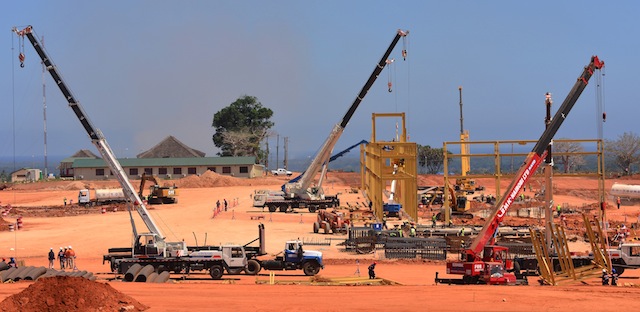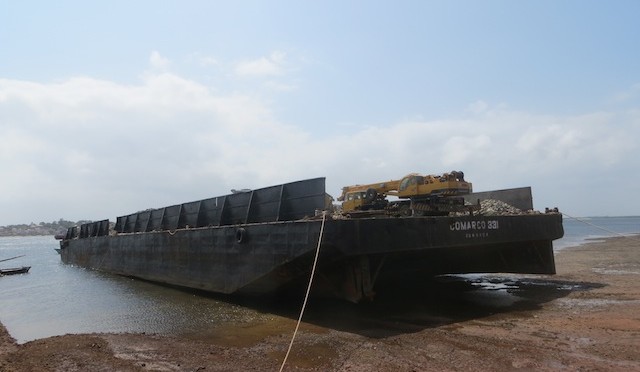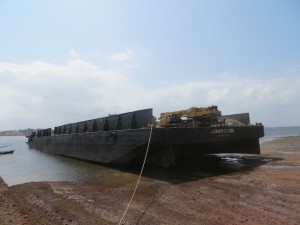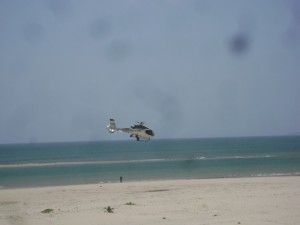Comparing the portfolio to three months and about five years back which was just before the last Kenyan general election.
The Stable
Barclays ↑
Bralirwa (Rwanda) ↑
Diamond Trust Bank ↑
East African Breweries (EABL) ↑
Equity Bank ↑
Kenya Commercial Bank (KCB) ↑
Kenya Oil Company (Kenol) ↓
Safaricom ↑
Scangroup ↑
Stanbic (Uganda) ↑
Unga ↑
What’s changed?
In: None
Out: Kenya Airways
Increase: EABL, Equity, KCB
Decrease: None
Dividends: None yet
Best performer: Bralirwa’s (up 31% in 3 months) then Stanbic (UG) and KCB
Worst Performer: Kenol down 5%
Unexpected gains/losses: Sold Kenya Airways, which despite troubles at rivals [Jetlink (suspended flights in November) and Fly540/FastJet (shareholder wrangles)], still has major clouds ahead with uncertainties over the delayed Boeing 787, hedging, staff, and serving routes in Europe and Asia.
Performance Summary: The NSE 20 share index is up 10% in the last three months, while this portfolio is up 11%. But, at 4,500, the NSE 20 Index is below what it was in November 2007 (~5,100) before the election.
Other Developments:
Mining Sector: A media session took place this week with a goal to demystify the mining sector. The announcement in 2012 that oil had been found in Kenya raised some unrealistic expectations about sudden wealth that will be available to Kenyan communities including a recent notice by the Minister for Environment requiring that mining ventures should have 35% local ownership and another this week by the Kenya Revenue Authority on payment of withholding tax on the transfer of oil and mining assets (10% from payments to locals, and 20% for foreigners).
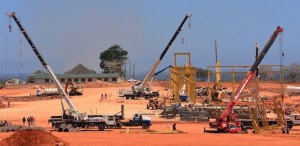 |
| Kwale Mineral Sands |
Discoveries this week at the session included:
(1) A Kenyan investor can buy shares in the Kwale Mineral Sands project as Base Resources (who are developing it and who will build a local processing plant) are listed at the Australian and London (AIM) Exchanges.
(2) Mining companies are always on the lookout for local partners & investors who are sophisticated and wealthy enough to understand the risks of mining.
(3) The sector comprises prospectors, explorers, and large mining companies each of who invest increasing amounts of capital from $50 000 at the prospecting stage to $1 million at the exploration stage to over $100 million at the mining stage and all assume varying degrees of capital, risk, and longer payback periods. Typical mining investors are interested in bullish markets, and stable countries with established policies on mining while conflicts over land use vs. mining rights remain perennial challenges (also affected this particular project).
Also see Can Kenya Avoid the Resource Curse?
Also see Can Kenya Avoid the Resource Curse?
GEMS: The Nairobi Securities Exchange launched a Growth Enterprise Market Segment (GEMS) a few weeks ago to promote the listing of small and medium enterprises. The basic criteria for a company to qualify include being in operation for at least one year, have audited accounts of at least one year (but no profit requirement), have sound management and board consisting of at least 5 directors, commit to have at least 25 (non-employee) shareholders own at least 15% of the shares within 3 months of listing, and appoint an NSE-nominated advisor to help them with governance.
At the launch, the NSE Chairman noted that GEMS provides an opportunity for firms participating in Kenya’s natural resources and mining sector to raise capital and also comply with the 35% local equity component.
Online Commerce: In the last week, South African-based Private Property Holdings and Kenyan-based Cheki Africa Media merged their businesses to form One Africa Media, possibly Africa’s largest classifieds portal, even as Naspers shut down Mocality in Kenya and Nigeria.
